A rich education kindles wonder
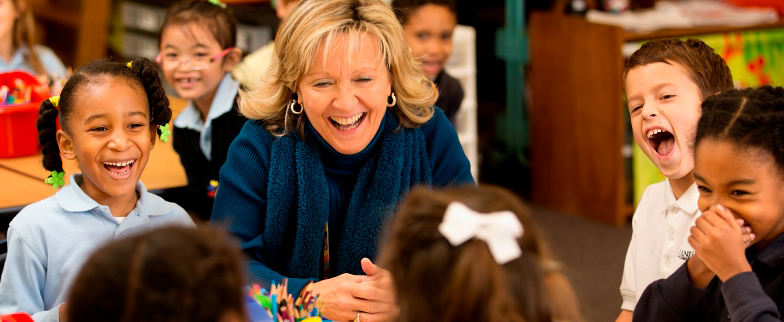
Landmark elementary school provides a rich, relevant, and rewarding academic program within a nurturing environment where every student is known and celebrated. Our teachers and staff passionately follow Jesus, and their greatest desire is for your children to develop a personal relationship with Christ at a young age.
Our 7:1 student-to-teacher ratio and the presence of a teaching assistant in each elementary classroom allow teachers to reach the needs of each student in grades PreK3 – 5th at our campus in Fairburn.
Student:Teacher Ratio
Grades Offered
Chapel Services
Landmark offers students a remarkable educational experience where every subject is enriched with the beauty of a Biblical worldview right from the start. Each day, passionate teachers, guided by their love for Christ, lead students on an engaging and innovative learning journey. These dedicated educators create a nurturing environment that fosters a genuine connection with Jesus, going the extra mile to help students understand how the teachings of the Bible relate to various academic disciplines. Here, learning isn't limited to textbooks; it's a holistic experience that nurtures both knowledge and faith. As students explore the wonders of the world through the lens of God's Word, education and spiritual growth harmoniously intertwine, offering a truly transformative journey for every student.
We believe in providing a comprehensive education that nurtures the mind, heart, and spirit. Our core curriculum is carefully crafted to encompass a wide range of subjects, including language arts, math, social studies, and the Bible. Each day, students engage in these fundamental areas of study, where the richness of a Biblical worldview is seamlessly integrated. Our passionate teachers guide students through captivating lessons, ensuring they excel academically but also develop a deep understanding of the teachings found in the Bible. With language arts, math, and social studies forming the bedrock of their education, students also embark on a transformative journey of faith and spiritual growth. At Landmark, we believe that a well-rounded education goes beyond textbooks. We work to instill values, foster character development, and inspire a genuine connection with God's Word. Preparing each student with an education that empowers their mind, enriches the spirit, and sets them on a path of lifelong learning and faith.
In addition to the core subjects, students can explore a variety of exciting classes. They learn world languages, engage in scientific experiments, unleash their creativity in theater, art, and TED (Technology, Engineering, and Design) classes, and enjoy the benefits of physical education. Our younger learners in K4 and K5 have their own special Imagination Station, designed just for them. It's a place where they can develop their imaginations and enjoy age-appropriate activities.
Our weekly chapel services bring students together to celebrate and worship as a community. The spiritual essence of these experiences resonates throughout our campus, influencing our daily lives. Even our youngest students learn from and are inspired by their older elementary peers, witnessing their journey of becoming who God calls them to be.
Students have an incredible chance to blossom into servant leaders! What does that mean? Well, it means they have opportunities to make a positive impact in the world by participating in all sorts of service projects throughout the year. These projects are like adventures where our students help others, spread kindness, and show empathy. Our school offers a bunch of different service projects for students to be a part of. They might work together to provide necessities for people in need or gather presents for children who don't have as much. They could even create special cards or crafts for first responders to brighten their day. By taking part in these service projects, our students learn the power of compassion, teamwork, and selflessness. They understand that serving others can bring so much happiness and make the world a better place. So, as they grow and learn at our school, they also grow as servant leaders, ready to make a positive impact on the lives of others.
We believe in nurturing the hearts and minds of young learners, providing them with a strong foundation for lifelong growth and development. Our Early Childhood Care offers a safe and loving environment where children embark on a journey of discovery, guided by caring and dedicated educators. We prioritize creating a Christ-centered atmosphere where biblical principles and values are woven into every aspect of their learning experience. Through age-appropriate curriculum, interactive play, and engaging activities, our program fosters the holistic development of each child, focusing on their social, emotional, cognitive, and spiritual growth. Join us as we cultivate a love for learning, build a personal relationship with Jesus Christ, and prepare our little ones to become confident, compassionate, and capable individuals ready to make a positive impact on the world for Jesus Christ.
Welcome to our vibrant media center, where a world of knowledge and imagination unfolds! At the heart of our media center is our dedicated librarian, Mrs. Zebroski, who goes above and beyond to instill a love for reading in our students. Step by step, Mrs. Zebroski creates an enchanting environment that captures young minds and nurtures their passion for literature. She hosts captivating book fairs, where colorful displays and carefully curated selections ignite curiosity and inspire students to explore new literary adventures. Additionally, Mrs. Zebroski organizes exciting storytelling sessions, where animated voices and expressive gestures transport students to faraway lands and magical realms.
Mrs. Zebroski also encourages a spirit of generosity by implementing a unique initiative. Instead of traditional rewards, she empowers students to choose items from the media center to donate to local charities. This not only cultivates a sense of empathy and compassion in our students but also reinforces the importance of using their love for reading to make a positive impact on the community. With each event, our media center becomes a gateway to endless possibilities, encouraging our students to embrace reading as a lifelong companion on their faith-filled journey.
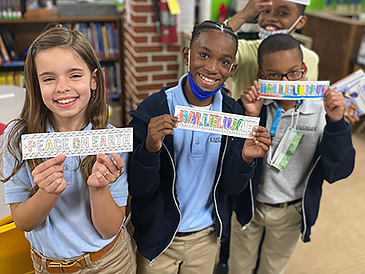
In December, our Elementary students went on a worldwide learning journey to find out how Christians around the world celebrate the birth of Christ. They discovered that many Christmas traditions are different from ours, but two things remain the same: the birth of Christ brings us immeasurable joy and stirs giving in our hearts.
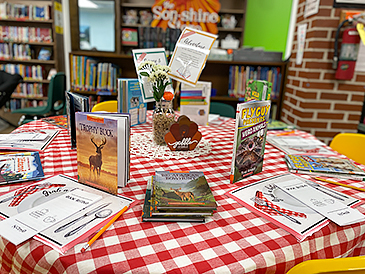
Our Fall Book Tasting event was a fun reading activity that introduced our students to the new books added to our catalog. Book Tastings are great tools to promote independent reading and to expose students to a variety of genres.
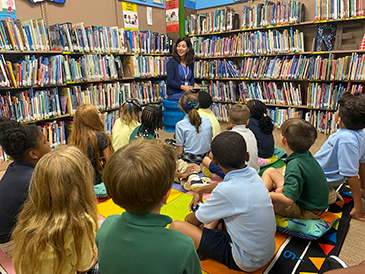
Landmark aspires to instill a true love of reading in our students. The Elementary students are introduced to great authors and gifted illustrators through daily Story Time. Reading aloud to children helps them expand their vocabulary, improves their listening skills, and sparks important conversation about a diverse range of topics.
Landmark elementary students have access to a variety of after-school activities through Jr. War Eagle Athletics and the After School Enrichment Program. These programs offer a diverse selection of engaging activities that appeal to different interests and skill levels. Allowing students to have fun, gain self-confidence, and cultivate teamwork and sportsmanship skills.
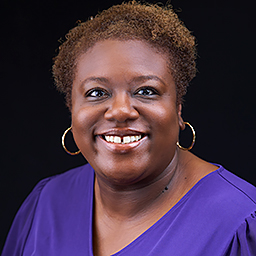
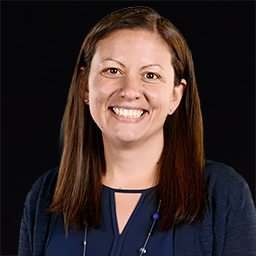
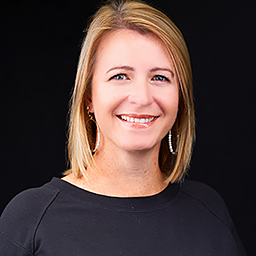
Come to an Open House or Campus Tour Day event, or receive an individual tour given by our Admissions team.
We love questions! Contact us today so we can help you see if Landmark is a great fit for your family!
Come soar with us! Click to get started with the admissions process.
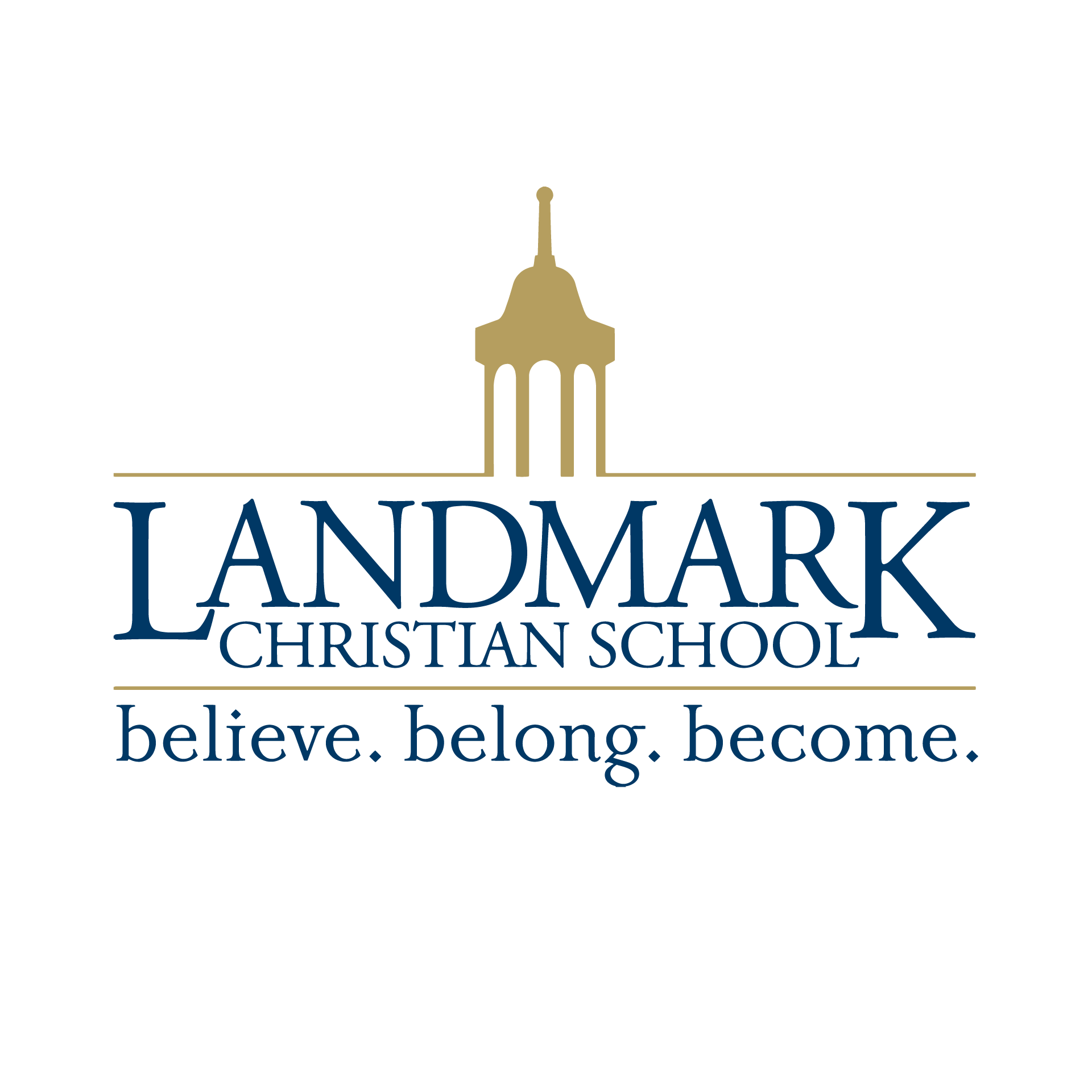
Elementary & Middle School
50 SE Broad St. | Fairburn, GA 30213